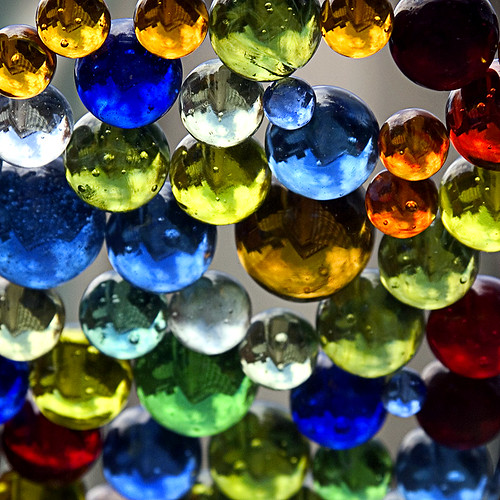iCloud: what does 'free' buy a music collector?
July 29, 2011 in digital music by Dan Gravell

Apple's iCloud is a new offering to store your music collection in 'the cloud'. The traditional benefits of cloud storage are there; there's no longer a need to store music yourself. In addition iTunes, iPhones and iPods all synchronise automatically with iCloud so that all of your devices have all your music, so long as you are connected.
But its not just storage and playback that you are outsourcing. Ceding your music to Apple means they also become responsible for organising your music, collecting cover art, deciding what genres music fits into and more. What does this mean to serious music collectors with large and diverse music collections, sourced from different places, chock full of rarities and bootlegs?
iCloud, like iTunes, is unashamedly mainstream focused. For starters, the free plan only works for the first 5GB of music. Further, in return for storing your music on Apple's servers for free you must allow a degree of loss of control. What's important for music collectors, though, is where this loss of control lies. If you're tired of grooming music meta data the way you want it and are happy to accept whatever you are given, for instance, the iCloud may be for you.
The journey is half the fun
Once you sign up to the iCloud you need some way of transferring your music there. A brute force approach would be to upload it, but a technology called iTunes Match saves time and your bandwidth by recognising the music in your iTunes collection by means of an audio fingerprint. Once recognised, your music is supplied by the Apple iTunes Store. This means there's no need to upload music to iCloud, unlike competitive Google and Amazon offerings.
What's an audio fingerprint? It's a way of summarising the music in a digital music file, determined by the underlying audio and not the digital encoding. This means audio fingerprints for the same music should match, regardless of the source encoding (FLAC, MP3, OGG or whatever). Audio fingerprinting is used quite extensively in various software products. Apple's was acquired from Lala. bliss also has a feature request to incorporate it (audio fingerprinting, not Lala ;-) ).

That's the theory anyway. I don't know much of what was Lala's specific technology, but audio fingerprinting is far from foolproof. Having run Picard on my own library and heard tales of other tools I know false positives are de rigeur for this technique. I would hope this will work fine with Rihanna's latest and greatest. But what about bootlegs and rarities? I can only hope iTunes Match gives up and doesn't decide you own something completely different.
I've said this before and I'll say it again: the one thing worse than no automation is automation gone wrong. The matching service will need a slick way of overriding what it thinks are your music, forcing it to the lowest common denominator: uploading files.
Uploading: the brute force way
Uploading is another area where serious digital music buffs may have trouble. Digital music collectors realised a while ago that quality was king and, ideally, digital music should be stored at as high a quality as possible. This means storing music at the quality you received it at; CD quality for music ripped from CD, for example.
But files ripped losslessly are large in size and uploading this music from home internet connections will take time. Depending on your place of residence, upload speeds can be slower than download speeds and are often much slower. Assuming an average of 865 kbps and an average file size of 28MB that's about five minutes per file... and so about an hour per album. Better leave that one running overnight.
Remember that uploading only applies to the music that has not been recognised by iTunes Match. It's still not clear whether Apple will even allow uploading of lossless files yet. If they don't, a lot of audiophiles will find moving to iCloud a wrench.
Quality in the iCloud
So your library is uploaded and it's time to listen. You're smug that you're no longer responsible for storing your music, that you just saved yourself oodles of time by not having to configure backup or tagging or anything else that the unfortunate luddite music hoarder has to do.
Music which has been recognised using iTunes Match will be streamed at 256kbps. Whether this is good enough is a personal call, but some with audiophile music equipment may be worried, or at least want to try out the service before committing.

The music not recognised will, apparently, be streamed at the original bit rate, but as questioned above it's not clear whether Apple will allow the uploading of lossy files.
There is hope, though. It will be perfectly possible for Apple to introduce higher quality versions of the music library as download speeds increase. Indeed, this opens up the possibility that your old crappy-sounding 128kbps MP3s will be automatically upgraded to high quality, or lossless, in the future. This sounds a much better alternative to the dreaded re-rip en masse! However, this also sounds like a marketing opportunity for Apple: more expensive iCloud plans for audiophiles.
Where's the control?
Closer to my heart is how and whether your music will be organised to your liking. iCloud offers advantages and disadvantages in this regard. Just as ceding control of your music saves you time in the normal administrativa of music library management, it also means ceding exactly how your want your music sorted, ordered, classified and organised.
On the good side, I think iCloud should cover the basics well. For instance, track titles, album names and artist names should be completed and formatted consistently (if not, maybe Apple should use bliss ;-) ).
Things get more difficult when we combine our uploaded music that iTunes Match failed to recognise with the iTunes-provided music. How to retain consistent genres or multi disc label formats? As it's inevitable that you will discover these inconsistencies over time, I hope that iTunes allows editing of your uploaded files' metadata.
And worse, there's potential for some of the hard work you've put into your music library to be lost. When iTunes Match successfully matches a track, your metadata customisations will be lost because only the audio fingerprint is transferred. That means if you've added, for example, sleeve notes or back cover art it will be lost. The only hope is that Apple provide this media later, but if they do, like the audio quality question, it may cost more money.
To iCloud or not to iCloud...
iCloud clearly offers some advantages to music lovers. To audiophiles however, I find their offering lacking. Music lovers with high quality Hi-Fi equipment should wait until iCloud is launched, and then test the service with a variety of music before committing.
Maybe one possibility to investigate is to combine iCloud use with your own locally stored collection? While this loses the advantage of saved storage space, you can at least still get iCloud's automatic synchronisation between devices.
Thanks to Hamed Saber, Salim Photography and Andrew Morrell Photography for the image above.

